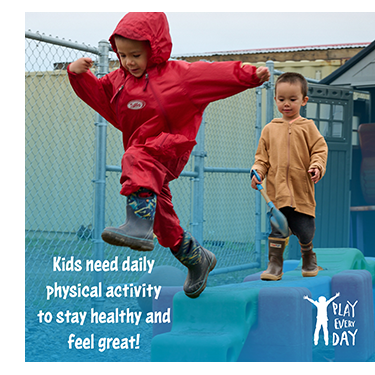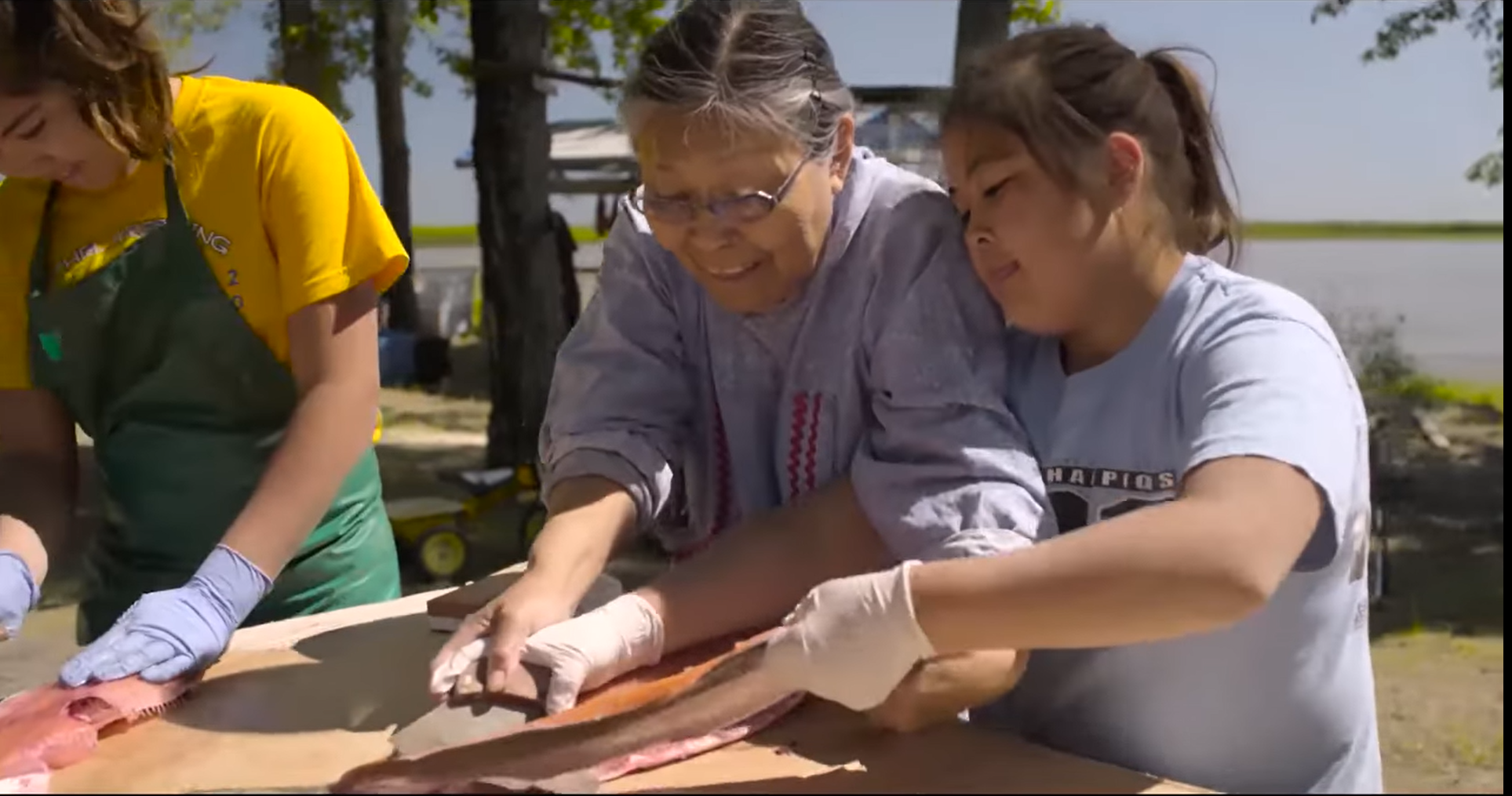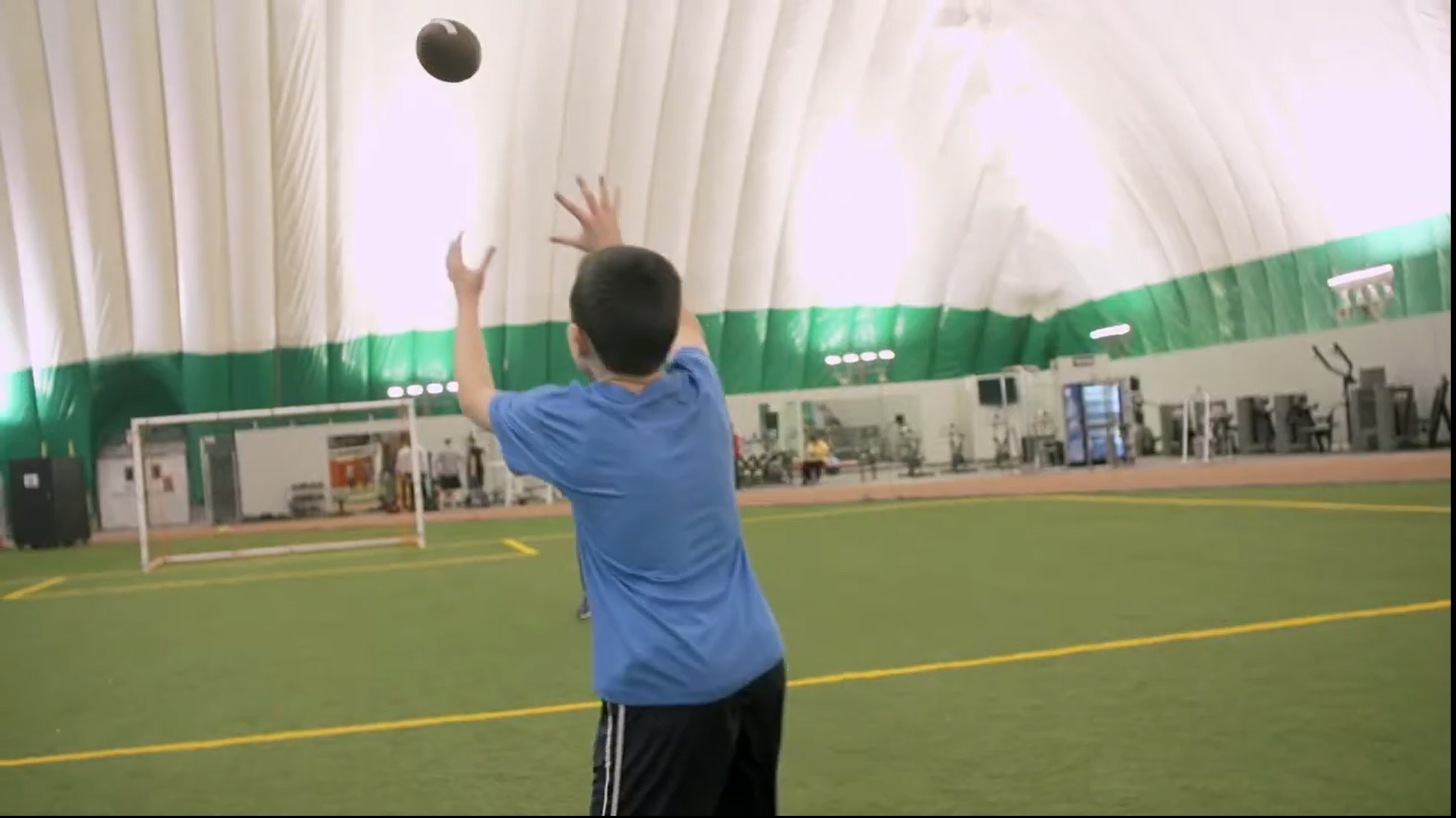Get Out and Play
Why is physical activity important?
Visit other Play Every Day sections:
Overview
Why is Physical Activity Important?
Active children tend to grow up to be active adults. A lifetime of physical activity can lead to better health.
Parents and caregivers can help children be more active by making activity part of their daily lives. Parents can spend time with their children by going outside, walking, sledding, playing catch, building a snowman, biking, swimming, playing at the park, and even doing chores together. Children learn from their parents the joy and fun of physical activity by being active together.
Physical health improves health now, and years later
Physical activity is activity that moves our bodies. Physical activity can bring benefits right away. Benefits include: improved blood pressure, blood sugar, attention, memory, and sleep at night. Being active can also reduce feelings of anxiety.
Long-term health benefits
Physical activity for children:
- Helps reduce chances of obesity
- Helps reduce chances of diseases that can last a lifetime, also called chronic diseases, like type 2 diabetes, heart disease, and some cancers
- Helps build and maintain healthy bones and muscles
- Helps mental and emotional well-being
- Reduces feeling depressed or anxious
- Improves attention and memory. This in turn can help students do better in school, including:
- Better grades and learning
- Factors that help grades and learning, like focus in the classroom
How much activity should kids get?
Physical activity is anything that gets your heart pumping or makes you stronger. The Physical Activity Guidelines for Americans recommends different times and types of activity by age.
Preschool (ages 3-5)
About 3 hours of physical activity over the day is recommended for the best growth and development. Keep kids moving on and off throughout the day, with a mix of light, moderate, and more intense activities.
School years (ages 6-17)
Get out and play, 60 minutes every day. To feel great and maintain a healthy weight, at least 60 minutes of physical activity each day in this age group.

Supporting active kids
Parents and caregivers can encourage many types of active play. Children benefit from structured activities, like planned games or kicking and tossing a ball. They also benefit from free play that lets them move as they want. Let children play in outside spaces, where they can safely express themselves with more movement, louder voices, and messier play.
Limit the amount of time your kids are in front of screens when it’s not for schoolwork. Set daily or weekly time limits on smartphone and computer use, television watching and video gaming. Read more about recommended daily limits.
Come up with fun ways for the whole family to play. It doesn’t matter what it looks like — an organized soccer match or a backyard game of tag. Adding a little more activity to every day can mean big health benefits for your children. Try one of these activities as a family.
Read more about the importance of play and activity below.

